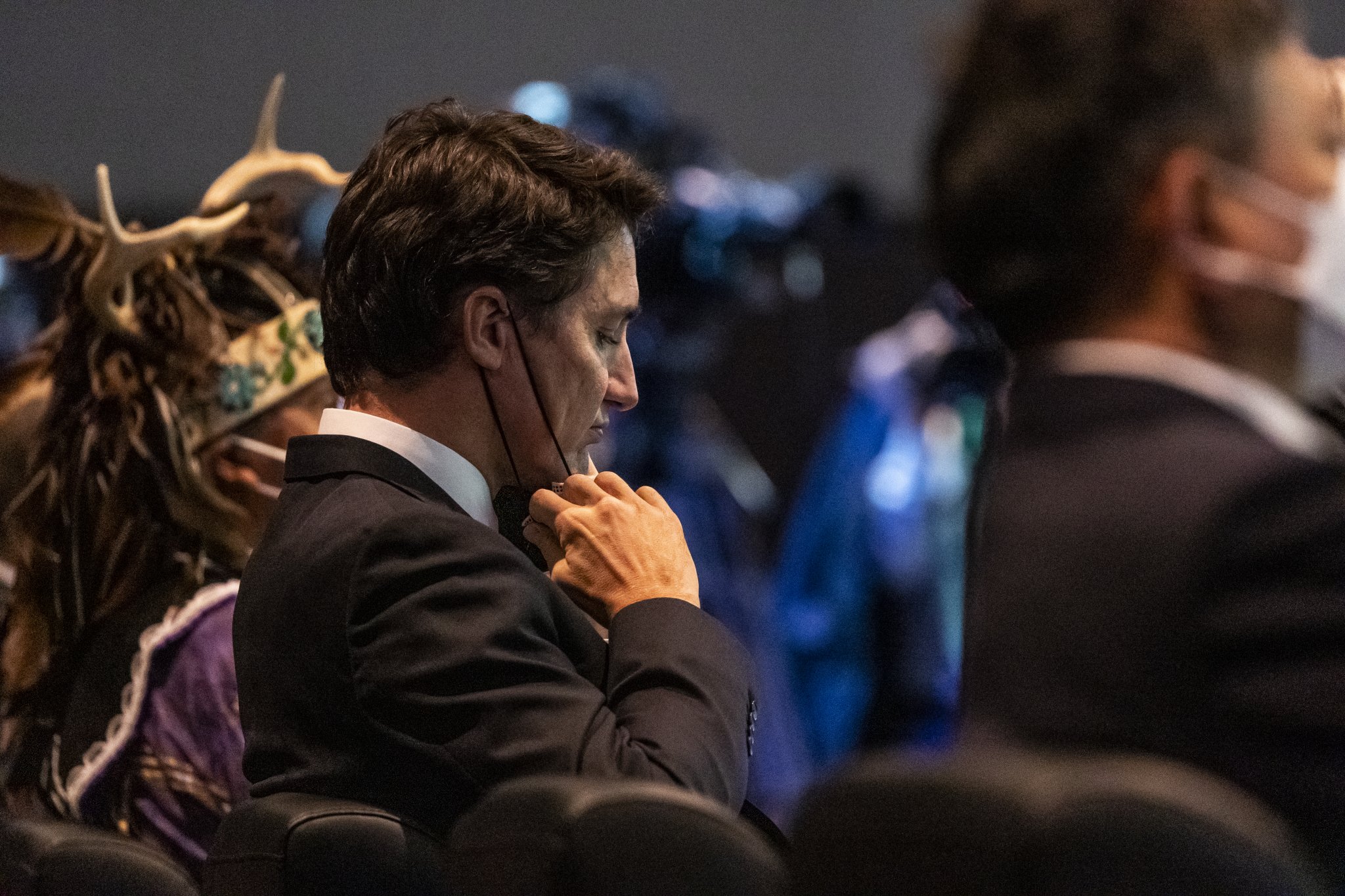And kids don’t want to eat their vegetables or go to bed on time… Sometimes people need to be encouraged to do the thing they don’t want to do, but is only in their best interest.
The stupidest part of this whole thing is now easy it would be to set up in a way that people could accept…
Levy a small carbon tax, nation wide, on all energy, for all users. The carbon tax goes into a fund, which is re-distributed to encourage the right behaviour:
- Improve / expand public transit
- Fund energy-efficiency retrofits
- Subsidize green power initiatives
- Rebates on zero-emission transport like electric bikes, and compact electric cars
- Retrain existing oil & gas industry workers to install/maintain electric infrastructure
- Cash for Clunkers to get polluting vehicles off the road
- Build new, ultra-energy efficient homes based on an improved building code
- Tax rebates to everyone in the lowest tax brackets.
Please, steal this idea.
And kids don’t want to eat their vegetables or go to bed on time… Sometimes people need to be encouraged to do the thing they don’t want to do, but is only in their best interest.
I work as a public servant and I say this like once a week. The general public acts like a spoiled child who wants to eat candy for dinner. The public do not care that candy isn’t nutritious, they do not care that they will rot their teeth out if they eat out for every meal, they do not care that it will give them an upset stomach. They know what’s best for them and candy is what’s best.
That and they think that if their siblings eats vegetables they then don’t have to eat them themselves, so they prefer to force someone else to eat them in their place.
But it’s already financially beneficial to the majority! That’s what’s most frustrating to me!
Of those who say they receive more than they pay, support for the carbon price reaches 79 per cent. Among those who believe they spend more than they get back, the results are flipped: 82 per cent oppose the tax.
Got it. So people who don’t understand the policy don’t support it, and people who do support it do. That tracks.
Fix the messaging and the problem is solved. This isn’t rocket surgery, but for some reason both the NDP and Liberals are piss poor at messaging (to wit: the Alberta UCP going on an advertising spree about their assinine Alberta pension plan idea while the silence from the opposition has been deafening).
And those people who don’t support it because they pay more in carbon tax are the ones who need their behaviour to change… So, it works.
We can’t tax our way out of climate change. We can’t just put a tax on gasoline without creating viable alternatives to driving in our cities. We need bike lanes, walkable neighbourhoods and functional public transit.
It’s the least painful, most economically efficient way to encourage those things and other transitions. When it comes to transportation, higher gas prices have historically resulted in a market for more fuel efficiency (and inflation-adjusted low gas prices have lead to oversizing of vehicles). Unlike the 70s, this time, the carbon tax is brought in slowly and smoothly over many years to encourage conservation (including the things you mention), drive demand for more fuel efficiency, and in the long term, encourage the electrification of the remaining fleet.
The vast majority of Canadians want the government to do something serious about climate change, but they don’t know what that thing is. Economists said a carbon tax and rebate was the most efficient, but public support isn’t driven by economic papers, but by propaganda machines. It’s just too easy to blame the carbon tax for everyone’s problems. It’s the perfect boogeyman for inflation. Heavy handed regulation of industrial emitters would probably be the most supported by the public, but it would have a terrible impact on Canadian industry, and actually be limited in it’s effectiveness, as most of Canada’s emissions would still be “free.”
The market shouldn’t be focused on fuel efficiency but on total energy efficiency. Constantly pushing cars to be more effecient is still significantly less effecient than well built transit and active transport like walking. Our cities are built based on sprawl and strict zoning, consuming more land and requiring more resources to build roads and infrastructure. Existing spaces in downtowns or old retail sit vacant for years while new developments continue outside of town.
The government can reduce carbon emissions by encouraging people to use less carbon during their daily commutes by building effecient cities. Denser housing and commercial units are also more themerally effecient. This could actually reduce the amount of carbon generated from transportstion and heating rather than collect money from the carbon generated.
Increasing the price of carbon means people will have an incentive to stop generating so much of it. If it’s free to put another ton of CO2 into the atmosphere many people won’t think twice about doing it.
Yes, but there has to be viable alternatives to actually let people change.
People won’t stop using the highway for their commute if there isn’t another option like a train, reliable rapid transit bus, or an affordable apartment closer to the office.
Most people won’t demand any of that if gas is cheap. It requires political will to get public transit built and funded.
Public transit is the standard and the normal around the world. People will commute to work in whichever way is fastest and conveneient for them. Many people would rather read a book or browse the web while a train takes them to work over sitting in traffic. The only reason we don’t currently demand it is because many people in Canada have never experienced good transit and walkability so they really don’t know we could be building much better. Your mobility freedom in this country is nearly dependant on a driver’s lisence or access to a car.
We shouldn’t have to be doing the tax shake down and public revolt steps when we know by the numbers that transit is more energy and carbon effecient. Once those alternatives exist, a carbon tax would be much more effective because now people actually have a choice in their transportation.
The carbon tax isn’t a “shakedown” btw, the income is redistributed.
Are you suggesting there is a city in Canada that doesn’t have some form of public transit? I’m not aware of any large cities like that so I really struggle to understand why you feel the carbon pricing wouldn’t be effective right now.
This post might help you understand how the carbon tax and rebate system works
Yes, but there has to be viable alternatives to actually let people change.
But what comes first? An incentive to change or an alternative to the status quo that’s been here for over 100 years?
Incentives are needed. Otherwise, as long as it’s free to pollute, people won’t do anything.
Public transit is public infrastructure.
Did you move into your house before the road to it was built? Or before the water, sewage, and electricity was built?
If we thought of transit the same way, we could have policies like developers need to consider transit connections on new developments just like they’d need to consider roads, sewers and electrcity. The longer we put off building transit, the longer its gonna take to have it working and reducing carbon emissions.
Did you move into your house before the road to it was built? Or before the water, sewage, and electricity was built?
What does that have to do with a carbon tax or what I said? Seems you’re making an argument on my behalf and then arguing with yourself.
But what comes first?
The carbon tax disincentive came first, and I think most reasonable people would agree it made sense whether it cost them personally or not. The problem is that for a lot of people the disincentive keeps growing while the alternatives haven’t improved at all.
The alternative to the status quo is the incentive to change. If you build the transit and make it a viable alternative in terms of costs and time, people will take it: millennials, gen z, and soon gen alpha aren’t driving at the rate of previous generations for many reasons, they want public transit but they are forced to drive. If cities actually start to prioritize public and active transit infrastructure improvements over those for single occupancy vehicles in a meaningful way people will take them. This is one of those candy for dinner scenarios where the public wants what they want without understanding why it’s not good for them and the gov’t needs to step up and do what’s right instead of caving to the pressure.
The alternative to the status quo is the incentive to change
That doesn’t even make sense because it assumes there’s already an alternative and public transit is not an alternative method of transportation for many if not most people.
It works for me, so I use public transportation daily but I know many people I work with drive in because they live far from work and public transit is a nightmare if you have to transfer between train/bus or bus/bus. Even then, my bus is often late, or doesn’t show up and there’s nothing I can do about it other than complain to the city, which they just ignore anyway.
Adding a cost to driving will force people to reconsider their habits and when enough people have to change, we can demand the city do better with transit. Right now, if you have money, you will not take public transit. It doesn’t make sense for people with money and poor people have no choice to take public transit.
How do you build transit infrastructure when you don’t know where the demand is?
I encourage you to look into China’s bullet train network, they did what you’re suggesting. And the last I heard the system is struggling because the stations and lines weren’t built where people actually needed them so it’s heavily underutalized.
The most successful public transit systems were ones built up over time. It’s going to take decades to fix public transit in many of our cities, are there any cities that aren’t doing this?
Also remember that city policy falls under provincial jurisdiction. I was surprised this year to even see the feds start trying to throw money at that problem and incentivise cities to rethink zoning. But it takes time, and it also takes voting people who care into the right spots (city hall and provincial governments)
No city can just build alternatives if they don’t know where the demand is.
Before a city can justify building anywhere,there needs to be demand. Both sides need to increase in stride.
Viable, but not perfect alternatives do already exist, and if more people use them they will get better, that is exactly what putting a price on carbon does.
Change starts from the bottom up, people.
Find out what the carbon tax goes to.
Almost like they should prepare and build those public services before applying tax. Applying a tax with no alternative is just a greed tax.
What’s the tax in this case? The current carbon tax is redistributed equally, so there’s no greed there, it’s effectively more of a wealth transfer then a tax.
Even though the carbon tax gets dristributed equally at the end of the year, everything around me is inflated because of gas prices, all year long. A new electric car is damn expensive, I don’t have the wealth to buy an electric car. If I have to pay a tax on everyday stuff, then I won’t ever have the money to buy an electric car. At the end of the day, the government is taking money I could have used for something else, even though I “get” it back at the end of the year, I should be able to make my own decision hence the “why tax me, or why punish me when there is no alternative”.
The rebate is paid out quarterly
The trouble you’re having is with increased gas prices is a global problem not caused by the carbon tax, oil prices have gone up everywhere.
You asking to get rid of the carbon tax is just you asking to have less money in your pocket, which is hard to understand when you’re also complaining about costs.
Just a reminder that you’re getting money money back from the carbon rebate program then you are putting in (and the calculation accounts for everything around you getting more expensive)
I don’t understand why they don’t use carbon tax revenues to fund public transit, electric car rebates, and other noticeable benefits. Instead, I pay carbon tax to heat my house, on my fuel and I still have to pay $20 a day in transit.
Instead, it’s a black hole of who knows where it goes. This is the Canadian way of solving problems though. More taxes and no accountability until it bites us in the ass.
I’m just going to edit to add:
Electric cars aren’t great in Canada. Distances are often too far and cold weather really restricts batteries. We will always need some type of fuel.
Same with home heating. Heat pumps don’t work in very cold weather. We will still need to burn fuel.
In both cases we are paying carbon tax when we really have choice of “cleaner” alternatives.
Instead, it’s a black hole of who knows where it goes.
It goes into those cheques they mail out every few months, that they somehow completely failed to label “carbon tax rebate” cheques.
Oh fuck off
My mother does 35000km a year and she did it with a Nissan Leaf (250km range) until we moved far enough that she decided to get an i3 with the generator (180km electric + gas generator) so she can do it without having to charge the few times a year she’ll come visit, 95% of the time she doesn’t need gas at all and she only charges at home. Before getting the i3 she was renting a gas car once a year to visit our family just because of one stretch where she wasn’t sure the charging station would work. The Canadian average yearly mileage is less than half of that, it’s just excuses to not change to something new even if it’s better.
Not even going to touch on how wrong you are about the carbon tax because others have already covered that.
Edit: Heat pumps work at temperature under -25 and you can use other types of electric heaters for the days that go under that, no need to use fuel.
The federal carbon tax doesn’t go into a black hole its rebated back to taxpayers.
Atlantic Canada only got limited access to natural gas in the last fifteen years. Most homes are heated by electricity or fuel oil, both more expensive than NG. After the oil shocks of the 70s, governments incentivized switching to electricity. Over 60% of houses in NB are heated that way, mostly by baseboard heaters. Baseboards are roughly 100% efficient, while heat pumps are 2 to 3 times that.
Air to air heat pumps work down to about -20C, after that the heating coils will kick in. That’s when heat pumps gets more expensive, on par with baseboards.
Base rwd Model 3 has a range of 430kms. With a 20% drop, you’re still at 345kms in really cold weather. Even in Toronto, 75% of driving commutes are less than 25kms, and it’s the worst case scenario.
One thing people like to ignore, average house sizes have doubled since the 1960s (1200sq ft to 2400sq ft) even as families became smaller than ever. Add in stupid fashions like 10ft ceilings, and heating costs are going to go nowhere but up.
Ford analysed billions of km from their professional users to determine the range necessary on a full battery on the e-transit, they then increased that number by a good margin just in case.
200km. That’s the number they came up with after analysing the habits of people who use their vehicle daily for work and people who take their car to travel 15km to and from work complain that electric cars don’t have enough range with 300km+ available! Heck, you save so much on maintenance and gas that you can just rent a gas car when absolutely required!
It’s not a black hole. It’s nearly completely paid back to Canadians evenly such that most Canadians get more back.
What’s also neat is that every single province could do exactly what you’re suggesting. All the federal government mandated was a price on carbon, each province could implement whatever system they wanted.
Like everything these days, our worst problems are at the provincial levels, and people don’t seem to understand or realize that.
I know you had a lot of unbacked up claims in your comment, but I wanted to remind you that most people get money back from the carbon rebate then they paid in.
Yeah because it’s just pinning the issue on regular people who have no control over climate change
The carbon pricing redistributes the earnings back to people.
This then does let people have an impact on climate change by influencing them to choose products that produce less carbon and therefore appear to cost less.
The genius is that the price difference is artificial, if on average people in the province choose the more expensive option, they will make back the difference quarterly.
As is the system only really penalizes people who consistently choose the more carbon inefficient options and do it a lot.







